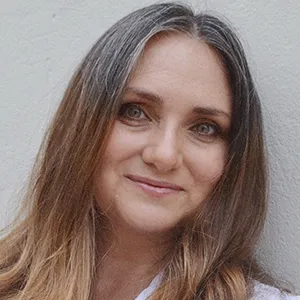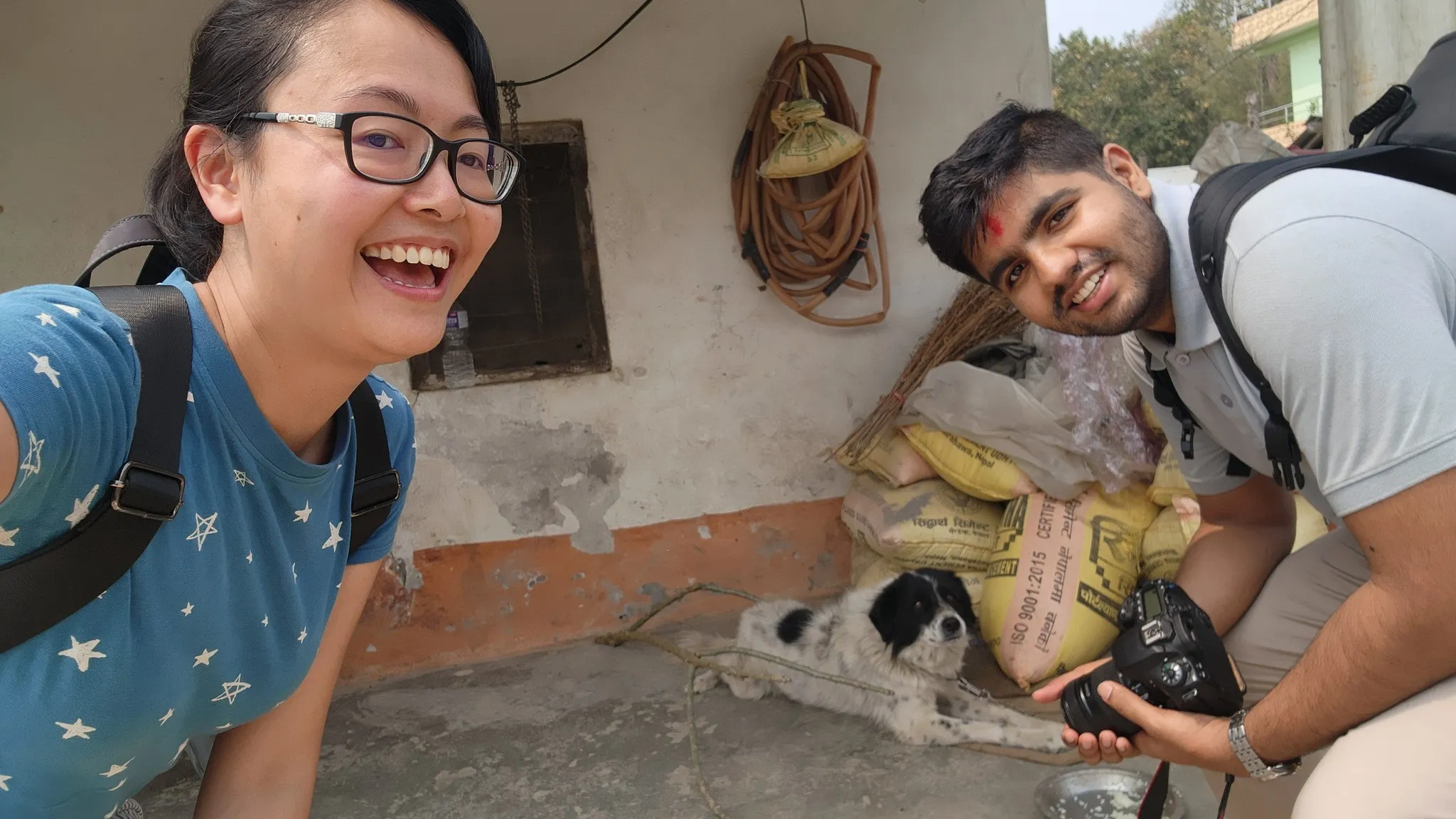When Eva Lee first met Subin Adhikari, she was sitting alone at the back of a vast conference hall in Hyderabad. It was the International Leprosy Congress—her first—and she’d arrived representing Leprosy Mission Australia, new to her role, a little unsure where to sit in a room full of people who already seemed to know one another.
“I was there by myself,” she remembers. “I’d only just started the job, and I didn’t really know anyone. Then Subin comes and sits next to me and just starts talking at me until I respond.”
Subin sounds amused as he recalls it. “She was sitting all alone at the back. I thought, oh, she’s sitting by herself, I might just go and join her.” He’d met her briefly months earlier, translating for her during a student visit in Nepal. But it was this second meeting—an unplanned moment between sessions—that stuck. “We talked about work, about the Mission, about what we wanted to do in the future. It just developed naturally.”
Eva says, “He’s definitely the extrovert in this story. There’s a quote somewhere about introverts making friends—it says ninety per cent of the time we don’t, and ten per cent of the time we get adopted by an extrovert. That was me.”
At that time, both were new to their respective roles. Eva was still learning to navigate the global networks of the Mission; Subin was only seven months in, overflowing with ideas. “I had lots of things I wanted to try,” he says. “And Eva was the first person who really listened. She’d tell me, this might work, this might not. She was very open, very patient.”

Eva remembers it differently—but kindly. “We still explore that question: do we work well together?” she says. “I think on the whole, we do. He’s so keen to learn, to make connections. It’s easy to get along with someone like that.”
Over time, their paths began to cross more often. Subin was leading communications and project work in Nepal, including a tertiary education program for students affected by leprosy. “Because of that, we started intersecting on different projects,” Eva says. “It became easier to learn each other’s styles.”
“At first I was always harassing Eva with my ideas,” Subin says. “Then I started to realise she had something of value to add every time. That’s how we started working well together. There’s openness on both sides. I can just send her half an idea, and she’ll ask the questions that make me think.”
Those questions are part of what defines their collaboration now. “Subin’s good at pulling conversation out of thin air, but sometimes I need to keep us on track,” Eva says.
“I’m a big-idea person,” Subin says. “Eva’s the detailed one. She’ll ask what we actually need to make something happen. At first, that would frustrate me, but now I see how much I learn from it.”
They’ve found a rhythm that feels like friendship. “When we were scripting the podcast recently, we just laughed for forty-five minutes,” Subin says. “It’s a lot of fun working together.”
The podcast is Hidden Lives—a collaboration between The Leprosy Mission in Australia and Nepal. “Subin was thinking about how to share more information and build awareness in Nepal,” Eva says. “And we were thinking about the same thing in Australia: how to reach people who might not know anything about leprosy.”
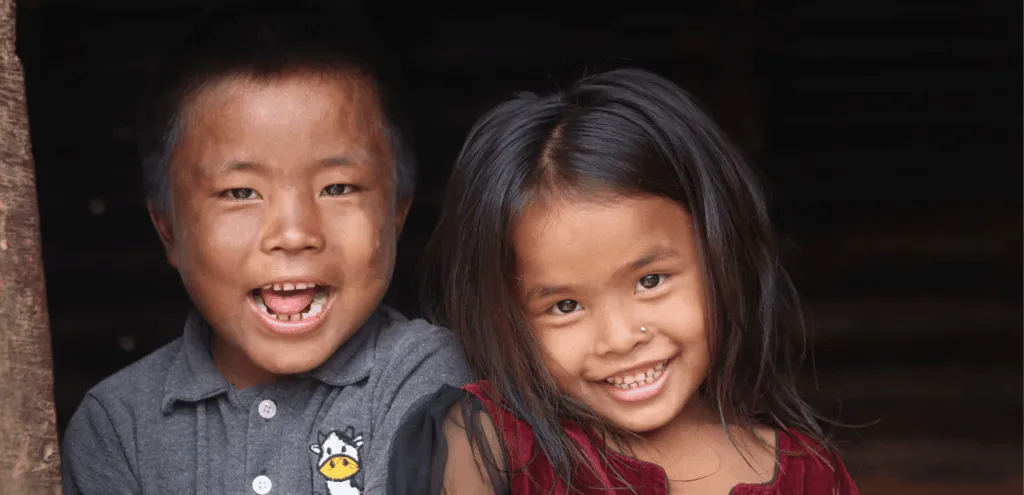
“I’d been thinking about starting a podcast,” Subin says, “but my version was just doctors talking about the disease. It would’ve been so dull. Eva said, what if we tell the stories of people we meet in our work? That’s when it really clicked.”
They recorded the first five episodes together in Nepal. “Eva brought microphones,” Subin says, sounding wry. “I forgot to hit record on two of them. We had to redo everything.”
Eva laughs softly at the memory but admits those early days were intimidating. “Talking into a microphone felt strange. Building up conversation took practice. But then we started noticing our cultural differences—how we thought about things, what we found important—and it became something richer.”
Those differences show up most in language. “Sometimes Subin says something I interpret differently,” Eva says. “We’ll get to the end and I’ll realise I didn’t understand what he meant five minutes ago.”
“It happens the other way too,” Subin says. “I’ll write a phrase that makes perfect sense in Nepal but not in Australia. We’ve learned to be more descriptive, to make sure people can picture what we mean.”
Respect sits quietly at the centre of it. “We know each other’s values now,” Subin says. “If something is important to Eva, I try to respect that—and she does the same for me.”
They both reflect on how differently they like to end episodes. “He’s more of a pessimist,” Eva says. “He’ll point out all the things that could go wrong, and I’m the one saying, can we just end on hope?”
Subin says quietly, “Not every story ends in hope. But every person we meet has dreams. Even if they’re not realised yet, those dreams matter.”
Some stories still stay with them. Eva thinks of a university student who told her friends she’d been diagnosed with leprosy—and lost them overnight. “That one really hit us,” she says. “We sat there wondering how to finish that episode.”
Subin remembers an older man he met in the field who told him quietly, I’m just waiting to die now. “That sentence stayed with me,” he says. “You don’t forget things like that.”
There are lighter stories too. “There was a beekeeper,” Eva says. “He trained through one of our projects, made his own hives, went into the forest to find wild bees. Those moments are joyful. You see resilience, hope, creativity—all the things that make people extraordinary.”
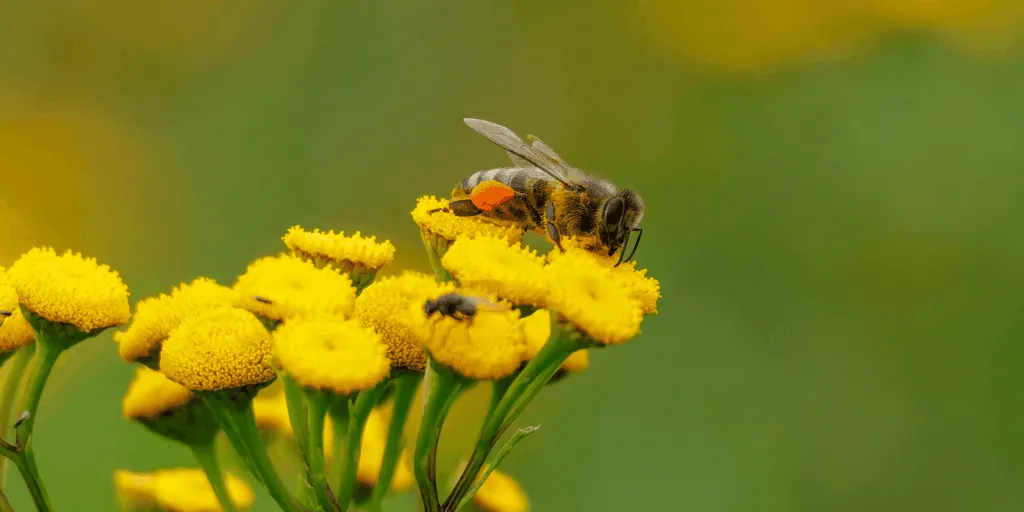
The stories, both tender and tough, are what keep them going. “We want people to see the humanity in leprosy,” Eva says. “To understand that it’s serious, but it’s also full of courage and community.”
“For me,” Subin says, “it’s about joy. If you don’t enjoy what you’re doing, it doesn’t last. The podcast reminds us why this work matters.”
Working together has changed them both. “I’ve learned to understand cultural differences more deeply,” Eva says. “How small things—emails, meetings, word choices—can mean something different to each of us.”
“She’s taught me to think through my ideas,” Subin says. “To plan, not just dream. And to help others bring their ideas to life too.”
They tease each other easily. “There’s an age gap—maybe ten years,” Eva says. “Someone once told Subin he sounds a bit cocky on the podcast.” For her, it’s more raw enthusiasm than over-confidence.
“I send her memes about being older,” Subin says. “But honestly, her experience helps me. It’s like having a mentor and a friend.”
Before every recording, they have a ritual. “We don’t just press record,” Subin says. “We spend half an hour catching up—work, family, life. It’s part of the process now. That conversation before the conversation.”
They hope Hidden Lives keeps growing, reaching people who’ve never heard these stories before. “We want to build awareness,” Eva says. “To make sure people affected by leprosy are seen and understood.”
“If more people listen, maybe they’ll care more,” Subin says. “That’s the goal.”
And through it all, they keep laughing—the introvert and the extrovert, still figuring it out.
“We still ask ourselves, are we working well together?” Eva says. “Maybe we are. Maybe we’re okay.”
“I think we’re more than okay,” Subin says.
Eva Lee and Subin Adhikari co-host Hidden Lives, a podcast by Leprosy Mission Australia. Listen at hiddenlives.buzzsprout.com or wherever you get your podcasts.
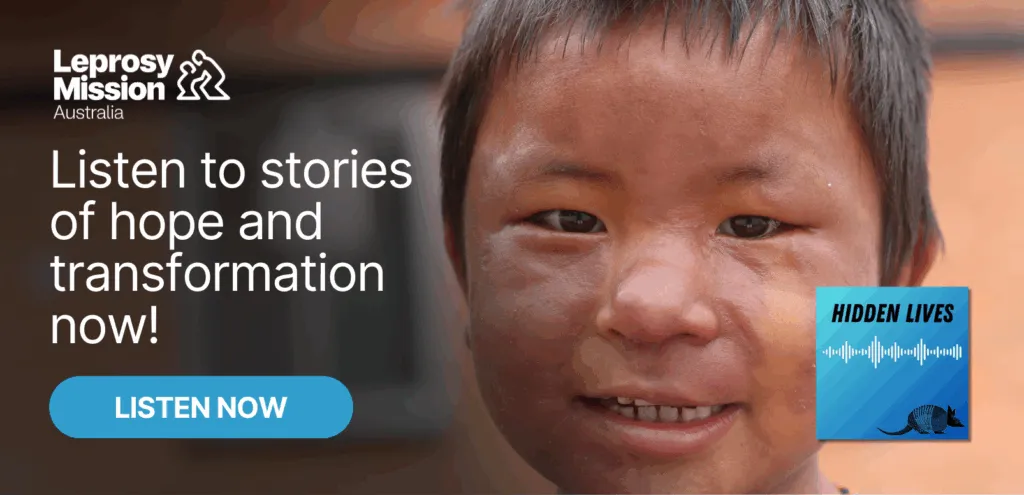
For more stories like this, you can browse our full collection here!
